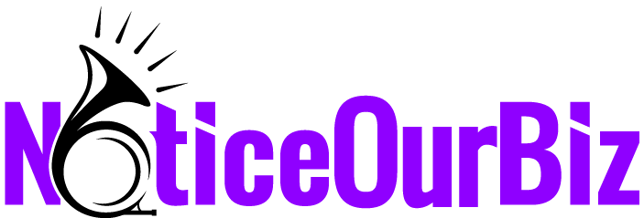What is Content Marketing?
In today’s digital age, businesses have to find new ways to reach out to their target audience. One effective way to do this is through content marketing. But what exactly is content marketing?
Content marketing can be defined as a strategic marketing approach that focuses on creating and distributing valuable, relevant, and consistent content to attract and retain a clearly defined audience – and ultimately drive profitable customer action.
The importance of content marketing has only increased in recent years, as more and more consumers turn to the internet for information, entertainment, and social interaction. By creating valuable and engaging content for their audience, businesses can build trust and loyalty with their customers, positioning themselves as experts in their field.
How Is Content Marketing Different From Traditional Marketing?
Traditional marketing is often focused on promoting a product or service directly to customers. This can take the form of TV and print ads, billboards, and other forms of advertising. The goal is to convince customers to buy a particular product or service.
Content marketing, on the other hand, is focused on providing value to customers by creating content that is useful, informative, or entertaining. The goal is to build trust with customers and establish a relationship with them. The goal of content marketing is to establish a relationship with the target audience by providing them with valuable content that they find useful, interesting, or engaging.
There are numerous examples of successful content marketing campaigns. For instance, the cosmetics company Sephora has a blog that features tutorials, reviews, and other content related to beauty and skincare. By providing helpful advice and establishing itself as an authority in the beauty industry, Sephora has been able to build a loyal following and drive sales.
What are the Types of Content Marketing?
Content marketing takes many forms, and businesses can use a variety of content types to reach their audience. Here are some of the most common types of content marketing:
- Blogging Businesses can create blog posts to provide their audience with informative, educational, or entertaining content that relates to their industry or niche. This also complements your SEO (search engine optimization) efforts to rank higher on search engines like Google, making it easier for customers to find you.
- Social MediaSocial media platforms, such as Facebook, Twitter, and Instagram, offer businesses a way to engage with their audience, share content, and build brand awareness.
- Video MarketingVideo is a popular and engaging format for content marketing. Businesses can create videos that showcase their products, provide tutorials or educational content, or offer a behind-the-scenes look at their operations.
- InfographicsBusinesses can use infographics to present complex information in a visually appealing and easily digestible format.
- E-booksE-books are long-form content that businesses can use to provide their audience with in-depth information on a topic related to their industry.
- Webinars Webinars are online events that businesses can use to share knowledge, provide training, or promote their products or services.
- PodcastsPodcasts are audio content that businesses can use to share information, provide entertainment, or establish themselves in their industry.
- WhitepapersWhitepapers are authoritative reports that businesses can use to provide detailed information on a specific topic related to their industry.
Mixing and matching these content types can help businesses create an engaging and diverse content marketing strategy that resonates with their target audience, ultimately leading to profitable customer action.
The Benefits of Content Marketing
Content marketing can offer numerous benefits to businesses of all sizes. Here are some of the key advantages:
- Increased brand awareness – By consistently creating and sharing valuable content, businesses can establish themselves as thought leaders in their industry, increasing their visibility and building brand awareness.
- Improved customer engagement – Content marketing allows businesses to engage with their audience on a more personal level, providing them with relevant and useful information that meets their needs and interests.
- Lead generation – By creating content that addresses the pain points and needs of their target audience, businesses can attract new leads and ultimately drive sales.
- Improved search engine rankings – By incorporating relevant keywords and providing quality content, businesses can improve their search engine rankings and increase their online visibility.
- Increased customer loyalty – By providing ongoing value to their audience, businesses can build trust and loyalty, resulting in repeat business and referrals.
Businesses can gain benefits through content marketing by regularly creating valuable content that meets the needs and interests of their audience.
Creating a Content Marketing Strategy
To create an effective content marketing strategy, businesses should follow these steps:
- Define your target audience: Identify the specific demographic you are targeting with your content.
- Create buyer personas: Create detailed profiles of your ideal customers.
- Set goals and objectives: Identify what you want to achieve with your content marketing strategy.
- Choose content types and channels: Determine what types of content will be most effective for reaching your target audience.
- Develop a content calendar: Plan out when and where your content will be published.
- Create and distribute content: Create high-quality content and share it with your target audience through various channels.
Measuring The Success of Content Marketing
So, you’ve created a content marketing strategy and now it’s time to see how well it’s performing. Here are some steps to help you measure the success of your efforts:
- Identify the metrics that matter – this includes things like website traffic, engagement rates, lead generation, and sales. Make sure you’re tracking metrics that align with your goals.
- Utilize the right tools – Google Analytics, social media analytics, and marketing automation platforms can help measure success. Use the tools that make the most sense for your business and goals.
- Analyze the data and make improvements – once you have the data, it’s important to analyze it and see where you can improve. Look for patterns and trends, and adjust your strategy accordingly.
Content marketing is a powerful tool for businesses looking to reach and engage with their target audience. If businesses can deliver valuable and relevant content to their target audience, they can set themselves apart from their competitors and develop a loyal customer base. With the right tools, you can develop a strong online presence and see long-term growth and success in your business.
We’re happy you found this article informative! Go back to our blog page to find more marketing tips and tricks to get your business the exposure it deserves to grow to the next level!
Running a business is hard enough without worrying about how you’re going to tell people about it.
Notice Our Biz is a full-service marketing agency that is committed to developing- and executing- marketing plans for businesses that meet their needs, raise brand awareness and authority, and drive conversions. We offer social media, SEO and PR services that authentically and organically builds businesses up with a complete marketing ecosystem that will get them the attention they deserve.
Click here to schedule a FREE consultation to join the business owners already working with Notice Our Biz to help their businesses grow.



